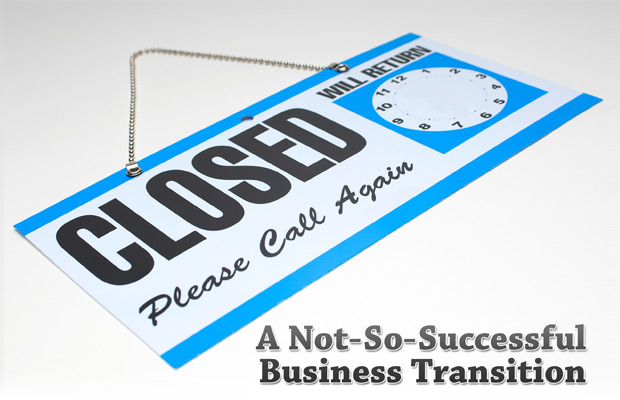A Not-So-Successful Business Transaction

Ben Franklin loved the entrepreneurial spirit. He, himself, was an entrepreneur as a young man, so he knew how hard it was to start and manage a new business. Perhaps because of his life experiences, he supported entrepreneurs and small business owners for over 200 years after his death through an interesting bequest he included in his Last Will and Testament.
He left the equivalent of $4,444 to the cities of Boston and Philadelphia with specific instructions that the funds were to be loaned by city officials in small increments at a rate of 5.00% per year to entrepreneurs to help them establish their trade. Over the course of two centuries, the funds set aside by Franklin provided more than 1,400 grants and impacted countless lives.
Whether you have the support of a forward thinker like Ben Franklin or you go it totally alone, owning a business is a major undertaking. After putting so much of your energy, time, and money into starting and running a business, the last thing you want is for the business to collapse because something happens to you.
That’s exactly what can happen if you don’t plan ahead for some sort of business succession. Even if the plan is to simply sell the business assets and wrap up shop, things can get very messy without an appropriate plan in place.
The following is a true story of a probate my firm handled for a family that shows just how messy things can get when a person dies owning a business. The names have been changed and details modified to protect confidentiality.
When Peter died, he was survived by two children – a son and a daughter. He left a Last Will and Testament naming his daughter as personal representative of his estate, thinking this in itself would allow her to handle all his final affairs with ease. His estate included his home, several bank accounts, and the solely owned business he had built from the ground up. At the time of Peter’s death, the business owned a bank account, inventory, equipment, a vehicle, and accounts receivable. The business also had some bills to pay and debts to service.
When Peter died, his daughter was forced to hire our firm to open an action in probate court before she had authority to do anything regarding her father’s estate. His Will did nothing to keep his estate out of probate court; a Last Will and Testament is only a set of instructions to the probate court as to how a person wants his affairs handled, not a means of staying out of probate court. But in this case, this was only the beginning.
Even though she was eventually appointed personal representative of her father’s estate, Peter’s daughter still didn’t have authority to manage her father’s business. She had to pay to have a Director’s Resolution prepared, along with an Appointment of New President. Then she had to go back to court to request authority from the probate judge to sign these emergency corporate documents, before the bank or anyone else would honor her authority.
Peter’s daughter spent months on this, and she paid significant funds out of her own pocket because she did not have legal access to her father’s funds or the funds of his business during this time. By the time she had authority to manage the company bank account, the company’s bills and debts were past due. She caught everything up, wasting company funds on penalties and interest because of the significant delays she suffered due to all the probate formalities she was forced to comply with.
In the end, she was not able to sell the actual business, which just months before had been a successful business with a regular income stream. Instead, she was forced to use the authority she finally received from the probate court to liquidate all the business’s remaining assets to pay bills and cover debts, leaving almost nothing of the business to pass on to Peter’s children when it was all said and done many months later.
The better plan would have been for Peter to set up a Revocable Living Trust and transfer his ownership of the business to the trust. The trust would have named his daughter as the successor trustee and granted her authority to take over the trust and all its assets, including the business, the moment of his death. There would have been no court, very little cost, and almost no delay in putting his daughter in a position of authority over his business, which could have given her many more options in handling her father’s affairs much more quickly.
You put too much into starting and running a business to let it all fall apart when you’re no longer there to take care of it. You need a plan.









0 comments